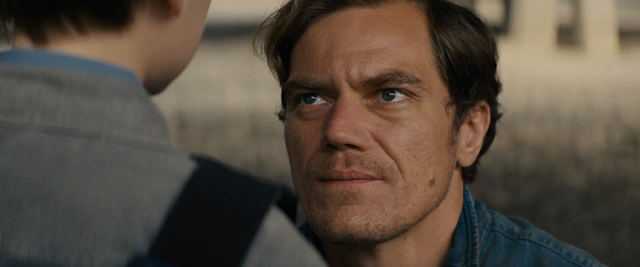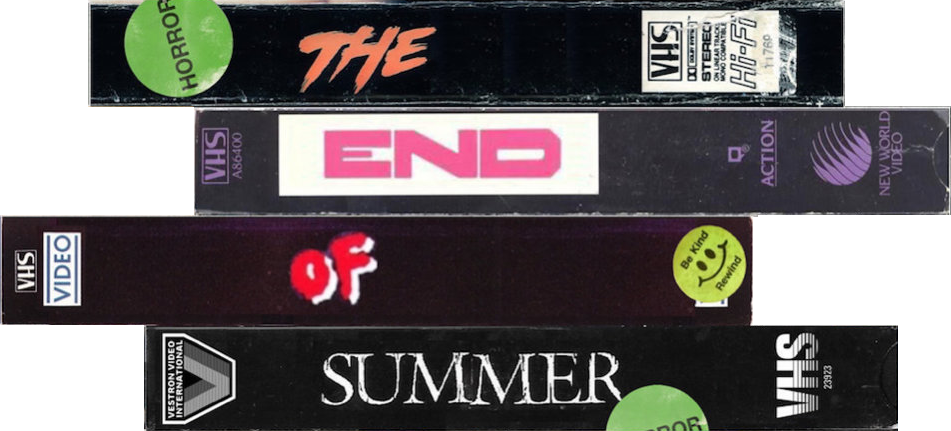
By now, John Carpenter should have his own sub-genre, what with the amount of films and filmmakers homaging his body of work. It Follows, The Guest, Last Shift, and Cold in July—all warmly received—were made by filmmakers who grew up watching the master of terror’s output, and whose minds were beautifully infected by Carpenter’s siege-like settings, striking images, moody musical compositions, gliding camera work, and keenly aware sense of fun. In the same way Carpenter was inspired by Howard Hawks and Alfred Hitchcock, he has successfully transitioned from protégé to mentor. Though so far many of these homages—if not all—have landed squarely in the horror genre, leave it to celebrated director Jeff Nichols (Take Shelter; Mud) to create his own Carpenter homage while still maintaining his own identity. Lots of filmmakers are re-examining the suburban terrors of Halloween, the pulpy grindhouse western battlegrounds of Escape from New York, or the siege-like fights of a few against many a la Assault on Precinct 13. But with Midnight Special, Nichols is more interested in reexamining the love for the wondrous and magical '80s films he grew up watching—chief among them Carpenter’s Starman, perhaps the most underrated of the director’s career. At the earliest beginnings of the project, Nichols stated that he wanted to make a John Carpenter-inspired "chase film," and he's done exactly that--and more.

Midnight Special’s greatest strength is its script, which provides details on what’s going on only as they’re needed. Everything the audience requires to follow the narrative is provided to them, but not in typical ways. There are no characters to shamelessly provide exposition, and there are no on-screen text crawls that catch the audience up on who’s who, what’s what, and why everyone is after Alton Meyer (IT: Chapter One's phenomenally old-souled Jaeden Lieberher). The film peels back layer by layer of its mystery as it plays on, revealing an extremely touching family drama that exists alongside the more thrill-based chase film that one might be expecting. The viewer is dropped into the conflict as the plot is already well underway with no moments of recollection. There are no flashbacks, not even brief mentions. As harried and dangerous as the chase is, you—the audience—are along for the ride. You are riding shotgun with Roy (frequent Nichols collaborator Michael Shannon), dedicated father to Alton Meyer, the most wanted human being (?) in the world. By your side are Lucas (Joel Edgerton), faithful friend, and finally, Sarah (Kirsten Dunst), Alton’s mother. This newly formed family unit will be your own as the chase ensues. You rest when they rest, you run when they run. You are never aware of any danger until they walk around the corner and come face to face with it. Pursuing them (or is he?) is Adam Driver’s Peter Sevier of the NSA, a post-millennium take on Charles Martin Smith’s Dr. Sharmin from Starman—another man caught in the middle between the government, and something astonishing and unprecedented.
But it's the interplay between these characters, and the relationships that are either fully established or which begin to establish as the film plays out, that give Midnight Special its power, emotionally, to draw in its audience. There's no one who cannot relate to the family unit, the power of love between parents and their child, or the loyalty of a friend who will risk his life. We feel these things because we inherently know these things, and in the scattered moments when the chaos stops and everyone can take a breath, we realize, with surprise, that there's nothing we wouldn't do to save all of these people if we somehow found ourselves in the same conflict--even if saving them meant saying goodbye. All of this is centered around young Lieberher's Alton, a child actor who thankfully skirts trying to appear knowingly childlike in the way many child actors do to connive their way into a "performance." Alton never comes across a child, though he is (at least on the surface), and he honestly holds his own against his seasoned colleagues.

Heavy family stuff aside, Nichols wants to have some fun as well and he turns up the geekdom to eleven. His lead character’s surname, Meyer, is likely a nod to Carpenter’s unstoppable boogeyman, while a gruff soldier character who maintains a constant presence during the final act bears the name “Carpenter” on his Army uniform. And Nichols’ go-to composer, David Wingo, turns in a score more dependent on synthesizer than his previous compositions, sounding both Carpenter-ish in their presence but with Wingo’s normal ability for soaring melancholy.
Carpenter, being the gruff, cynical, and dry-witted curmudgeon that he is, would be quick to dismiss any suggestions that he's inspired the next generation of filmmakers. Only when he does acknowledge it is when he sidesteps the honor intended in favor of making a joke about royalty checks memoed with "inspiration." But except for Carpenter's own Starman, the cult director and "master of horror" has never made anything so beautiful as Midnight Special, and even he would be awed in its presence.
As children of the '80s continue to matriculate into filmmaking, the past is returning in expected and unexpected ways. Franchises are being resurrected, and homages are sidestepping major studios in favor of creating something very specific, very unusual, and very beloved. Midnight Special joins the growing family of the Carpenter children, but with its very unique Jeff Nichols identity. We've had our Halloween iterations, our various Things, and our multitude of Assaults. And now it's time for something a little different. Though primarily known as a horror director, Carpenter exercised a light touch whenever he was afforded the rare opportunity, so for something as magical and touching as Midnight Special to not only exist for new audiences, but to also recognize and legitimize Carpenter's ability to tell a different kind of story, is another reason to celebrate the newest homage to a living legend's work.










































